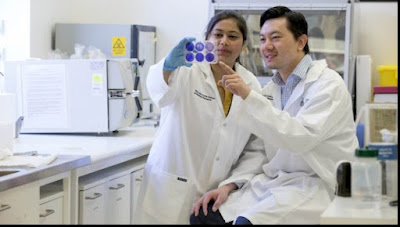I have knock wood had food poisoning only once in my life. But I wouldn’t wish it on my worst enemy.
Thankfully, researchers at the Australian National University (ANU) identified how Bacillus cereus—one of the most common types of stomach bug—works and how to combat it.
“We found how this bacteria interacts with our immune system,” Anukriti Mathur, lead researcher and PhD student with the John Curtin School of Medical Research at ANU, said in a statement. “We have discovered how it sustains itself and also how we might treat the nastiness it causes.”
Though not a household name, Bacillus cereus can be found in most household foods, including vegetables, meat, fish, rice, and pasta; it grows in these items of they’re not stored properly.
The bacterial infection, according to Mathur, has a “remarkable ability to secrete toxins,” which, once consumed, attack cells in the body, inducing vomiting and diarrhoea.
“We knew the toxin would have to attack the cells, triggering an immune reaction, but we now know how it does it,” she explained.
The germ directly binds to the cell and punches holes to kill it; the immune system, responding to the infection, then has a reaction.
This discovery could be vital in understanding and treating serious cases of food poisoning, particularly in those patients with a compromised immune system.
“Because we now know how the bacteria and the toxins work,” Mathur said, “we can fight it and find ways to use the immune system against it.”
“We might be able to save patients by weakening the toxin, or in the case of sepsis, dampening inflammatory responses,” she continued. “It also means we have therapeutic drug options to further support antibiotic therapies, especially in the face of rising antibiotic resistance.”
Of course, prevention is better than a cure, and researchers urge people to wash their hands well and prepare food according to safety guidelines.
“Always cook or reheat food properly. Bacteria may have landed on it and start secreting toxins in your food,” ANU group leader Si Ming Man warned. “Heating your leftover food properly will destroy most bacteria and their toxins.”
Source: geek.com

No comments:
Post a Comment